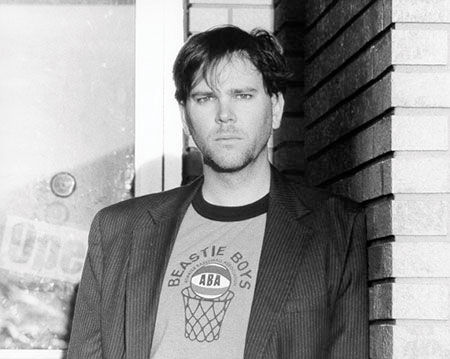Smooth stones have always appealed to me.
River stones, I guess they’re called,
though the best ones come from ocean shoreline
where cliffs are crumbling and tides are rising
and falling
and perfecting what they have broken.
In Maine, for instance,
there are beaches of big smooth stones—
the stones are piled deep
like those plastic balls in a kids’ carnival attraction.
And each night, and each morning,
in comes the weight of the water,
the weight of the ocean,
under which the stones turn on one another
until they are smooth,
until they demonstrate submission to a kind of rule—
we might call it the rule
of the weight of what is thrown.
The stones are smooth like eggs, sometimes,
or like a palette;
whatever shape they are,
they are evidence of the rule,
evidence of the always diminishing shape of origin.
This is what we mean by decorative.
I say like an egg, but what a strange egg.
Think of a creature of bone—entirely of bone.
Such creatures are not born;
such creatures are made.
I suppose it’s appealing to suggest that something other
than human artifice could be a maker.
That is, it’s satisfying to think
that the weight of the ocean
and the weight of meaning
could be in some way connected.
Perhaps we can’t help but to explore that fantasy.
A smooth stone, like a word,
is artificially refined.
Pick it out of its bed
and take it up into your grasp
and it is strange.
Why is it strange?
It is strange because it is so telling—
because, like a corpse, it so plainly confronts us
with its nonsensical independence.
How could the earth be a heap of smooth stones?
How could speech be a heap of words?
But unlike a corpse, it’s appealing
to take a smooth stone to hand.
A smooth stone is a weapon, and,
assuming it’s the right size, an attractive weapon.
It’s a weapon, moreover, that promises a great event.
The event is great because it alludes to
and calls for a certain talent,
a certain potential in its thrower.
A language, at any given moment, is so many words.
It’s one beach, let’s say, along a world-ocean.
I think of the way they named the portions of beach
on D-Day: Juno, Sword, Omaha, Utah, Gold.
Expand that map and you can picture
all the earth’s language-beaches.
Some are so close to one another that they overlap—
others are quite far apart.
No matter how far apart, however,
their differences are superficial.
Each beach is smooth stones,
and the stones have not been born—
they have been made.
Not made like a bicycle, mind you—
not made intentionally—
but made by weight,
made by a great thrown force,
thrown by No One, really,
for who-knows-what reason.
Perhaps this is why, when someone hurls words at us
like they are his own,
like the weight of the words is his own weight,
we are so mistrustful, so appalled.
Only the voice of No One
is really moving.
